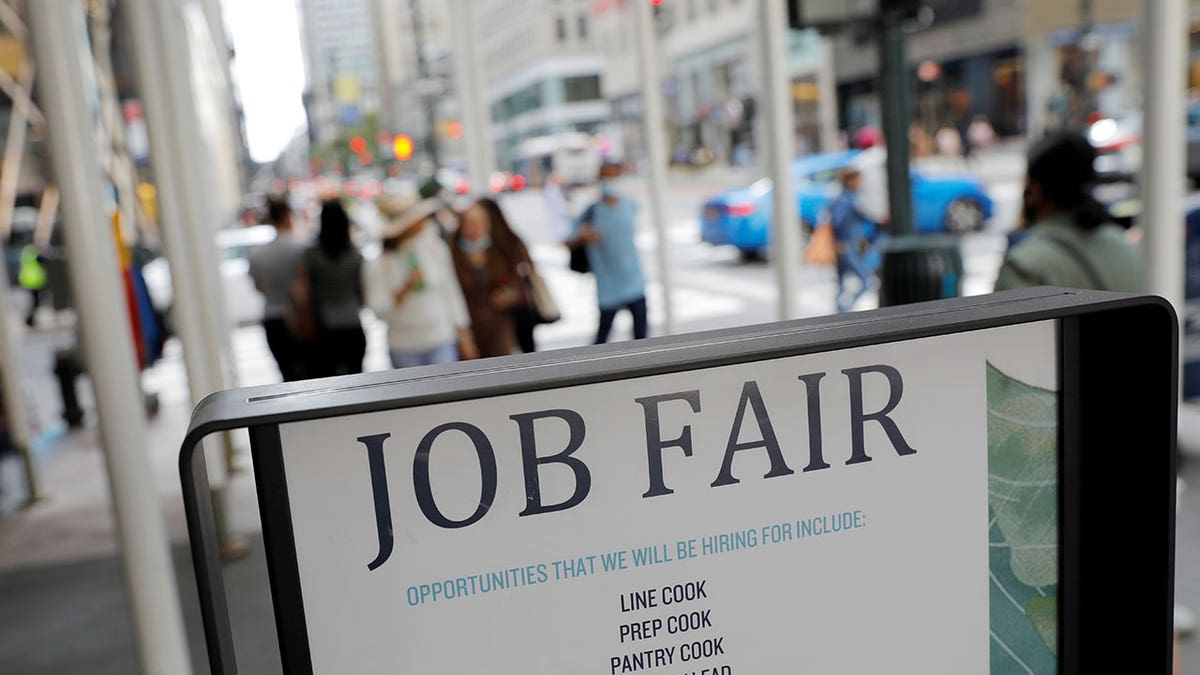New survey data indicates that one in four job applicants has lied, exaggerated or provided inaccurate information on their applications in some way, shape or form — and Gen Z leads the trend.
The findings from career.io — a career services platform — indicate nearly half (approximately 47%) of the age group admitted to falsifying some aspect of their job applications to fit the mold they think employers are looking for, followed by 38.5% of millennials, 20.4% of Gen Xers and 9.4% of baby boomers.
A spreadsheet detailing the survey data, provided to Fox News Digital, indicates that a majority of zoomers (slang for Gen Z) lied in key areas such as “work experience” (22.97%), and job “responsibilities” (28.38%), with “job title” coming in third at 17.57%. The large percentages indicate some survey participants falsified more than one area of their job applications.
Across all generations, “work experience” and “responsibilities” ranked the highest out of all falsified categories, but to a lesser degree than zoomers.
GEN Z BRANDED AS THE ‘MOST GULLIBLE GENERATION’ AFTER NEW ANALYSIS OF MEDIA HABITS
Certified Professional Career Coach (CPCC) Amanda Augustine told Fox News Digital the prevailing reason for the falsehoods is that young applicants with limited experience are desperate to make a good first impression and get their foot in the door.
“You hear so much of people complaining about this big resume hole their applications have fallen into, and it’s out of sheer desperation that they’re trying to enhance their experience in a way that will hopefully land them at least that interview,” she said Tuesday.
Augustine has worked with multiple clients over the years to help them reach their full professional potential.
She has heard many of these clients say they would be great for a role, even if they don’t appear perfect on paper, and they only need the chance to prove themselves.
“I think it’s that sentiment across all generations, but especially this younger generation that has not necessarily had to face the job market before, is really fueling some of these white lies, some of these flat-out lies that they’re putting on applications,” Augustine said to Fox News Digital.
GEN Z BRANDED AS ‘THE GHOSTED GENERATION’ AS DATES, COLLEGES AND EMPLOYERS KEEP SAYING ‘NO’

The data appears to reflect a desperation to appear “experienced” that steadily declines with age, indicating those still relatively new to the job market are uncertain about the navigation techniques they need to employ to find work.
The dropoff between zoomers and millennials who admitted to lying with regard to job responsibilities was approximately 8 percent, with Gen Xers and baby boomers continuing to dial back the intensity.
In the “work experience” area, zoomers’ 22.97% still sat a few points higher than millennials’ 18.70%. Compare that to Gen Xers and baby boomers at 9.51% and 3.59%, respectively.
Augustine says some of the falsehoods, such as lengthening the time worked at a specific location, are done to mitigate the stigma of employment gaps, something job applicants are forced to confront from time to time.
“I think people are really trying to find ways to do little stretches of the truth that they believe will land them that interview so that those small inconsistencies will just kind of be swept under the rug and ignored if they make a great impression during the interview process,” she said.
COVID 5 YEARS LATER: IMPACT ON THE WORKPLACE

But lies and fabrications can lead to big problems and have done so in some high-profile cases.
Veritas Software CFO Kenneth E. Lonchar for instance, lost his position after an investigation uncovered that he had falsified his academic records and USPS vice president of corporate communications William (Bill) Whitman Jr. was fired shortly after being hired for falsifying information about his academic background and work achievements.
Augustine says, for those with limited experience who want to appear as capable as possible for a role, focus on taking an inventory of your skills.
“There is such a greater emphasis placed on the soft skills such as collaboration, communication, problem solving. I mean, who doesn’t need a creative problem solver for their business these days? I can’t think of an industry where that wouldn’t be helpful in some shape or form,” she said.
But providing examples of times you have had to use the skills you profess to have or closing skill gaps through means such as taking an online course or learning from free demos are also important, she noted.
Then there’s networking — another useful tool in your tool belt if you’re trying to get your foot in the door.
“I can’t say it enough. Especially in this current economy and job market, networking is always going to be key. I don’t care if you just graduated from school, or you have 30-plus years of experience. Everybody has a network, whether they realize it or not — that is your classmates, your mentors, your career advisors, your professors, people you’ve mentored in the past, people that you’ve worked with previously… If you aren’t connecting with those people on LinkedIn and growing your professional network and investing in managing those relationships, you are doing your job search a major disservice.”
Read the full article here











